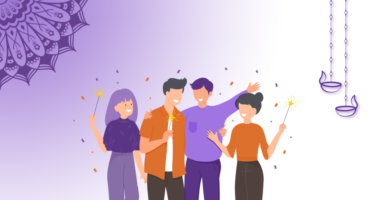 Read more +02 November 2021 in Basics of Neurodiversity
Read more +02 November 2021 in Basics of NeurodiversityCelebrating an inclusive Diwali
Diwali is a time for celebration. Its a time when we celebrate togetherness and try to drive away negativity with light. However, Diwali and other Indian festivals can bring unique challenges to neurodiverse people. This maybe due to disrupted routines, sensory overload and changes to usual sets of activities. There’s also the extra noise, the
 Read more +27 October 2021 in Uncategorized
Read more +27 October 2021 in UncategorizedAdaptive Clothing
Inclusion can be defined as the practice or policy of providing equal access to opportunities and resources for people who might otherwise be excluded or marginalized, such as those who have physical or mental disabilities and members of other minority groups. As we start being inclusive in all spheres and social practices, it becomes extremely
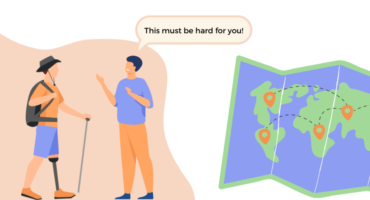 Read more +01 October 2021 in Basics of Neurodiversity, Healthcare & Neurodiversity, Uncategorized
Read more +01 October 2021 in Basics of Neurodiversity, Healthcare & Neurodiversity, UncategorizedWhat is Ableism?
Ableism is defined as the discrimination and oppression of disabled people; the societal belief that being abled is “normal” and is preferred. It is a system of oppression that favours being able-bodied/able-minded at any cost, frequently at the expense of people with disabilities. (Stacey Milbern “Ableism is the Bane of My Motherfuckin’ Existence”). At its
 Read more +20 September 2021 in Basics of Neurodiversity, Global overview of Neurodiversity
Read more +20 September 2021 in Basics of Neurodiversity, Global overview of NeurodiversityNeurodiversity and Academia
The word “disability” has been a subject of a wide spectrum of debate for ages. Individuals and communities over the years have tried to come up with a definition of the word “disabled” that encompasses most of the “disabilities”. These trials have led to a gradual evolution of various models of disability. These models often
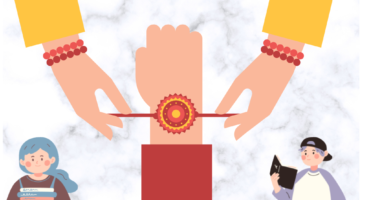 Read more +04 September 2021 in Basics of Neurodiversity
Read more +04 September 2021 in Basics of NeurodiversityThe Raksha Bandhan of Neurodiversity
For generations, traditional social structures have found themselves closely wedded to the idea that psychological differences are aberrations that threaten the longevity of a ritual and are harmful to “traditions”. The idea of neurodiversity did not fit into the narrative of “culture”.However, prevalent social rituals such as Raksha Bandhan have paved the way for the
 Read more +03 August 2021 in Basics of Neurodiversity
Read more +03 August 2021 in Basics of NeurodiversityNeurodiversity and Bollywood
Mainstream Indian cinema has its fair share of disability portrayals. But have they been realistic—especially when such disabilities are invisible? Cinema is considered to be a powerful medium to reflect and influence what society thinks and believes. Between the real and reel life, the silver screen has educated the masses—fostering changed practices and attitudes while
 Read more +14 July 2021 in Avatar Adventures, Education & Neurodiversity
Read more +14 July 2021 in Avatar Adventures, Education & NeurodiversityActive Screen Time and Neurodivergence
The pandemic has forced the world to work, socialize, and entertain themselves all through screens. Particularly, children have separated from their playgrounds and classrooms to remote technology. Digital evenings and Zoom classes beg the question: how much screen time is helpful?
 Read more +01 July 2021 in Avatar Adventures
Read more +01 July 2021 in Avatar AdventuresLearning Made Fun with Avatars
Have you seen your child mimicking their favourite dance moves from Chhota Bheem? Or maybe copying Doraemon’s actions? As impressionable young minds, children consider avatars and cartoons as their ‘equals’. Modelling after their peers, which can be virtual avatars, is a common trait found in all neurodiverse children. The concept of avatars and video modelling
 Read more +06 April 2021 in Avatar Adventures
Read more +06 April 2021 in Avatar AdventuresTeletherapy & Neurodiversity
“If you never learn anything new, you’ll never be anything different” The neuro-divergent community which includes people with disabilities and special needs have been fighting for their rights and accessibility for a really long time now, but the recent lockdown has made it obvious to all. Similarly, the existence of teletherapy has been omnipresent for
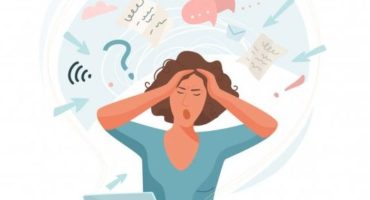 Read more +22 March 2021 in Avatar Adventures
Read more +22 March 2021 in Avatar AdventuresAutism & Sensory Overload
Have you ever had the experience of your computer or laptop just shutting down because of too many tabs being open? It just crashes doesn’t it? With an overload of information in it! Well, our human brains are just like a computer, but imagine the same thing happening to an individual with autism. The brains
 Read more +08 March 2021 in Education & Neurodiversity
Read more +08 March 2021 in Education & NeurodiversityHow is NEXT School moving towards inclusive education?
Inclusion begins at home, starting right from the formative years of the child’s education. There is a huge shift in the field of inclusive education, globally with some extremely progressive initiatives in India. NEXT School is India’s first Big Picture Learning school which makes it entirely unique and one of a kind. It allows personalisation
 Read more +03 March 2021 in Education & Neurodiversity
Read more +03 March 2021 in Education & NeurodiversityWhat are the different types of Special Education Plans?
In our last few articles we have seen the importance and role of IEPs in the special education sector. The IEP series talks about the Constituents, SMART goal setting, Applications of IEPs and Our top picks for IEPs. However, IEPs are not the only types of education plans fostering inclusion in the academic setting. We
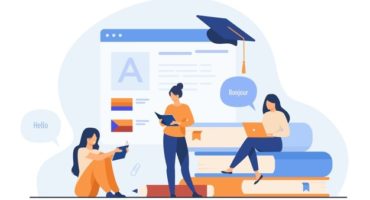 Read more +03 March 2021 in Education & Neurodiversity
Read more +03 March 2021 in Education & NeurodiversityOur Top 3 IEP Picks
Globally, IEPs (Individualised Education Plans) are used very frequently especially in countries like the USA, Canada, Australia and certain countries in Europe. The framework of IEP more or less remains the same, with different sections highlighting the various aspects required for the all round development of the student. Here today, in this article we will
 Read more +26 February 2021 in Education & Neurodiversity
Read more +26 February 2021 in Education & NeurodiversitySMART Goals & IEPs
While an IEP provides a holistic approach and framework for the student with special needs to progress in class, it is equally necessary for the IEP team (parents, teachers, therapists, advocates) to jog down their memory and plan smartly the goal-setting process! Today in this article we will have a sneak peek of the SMART
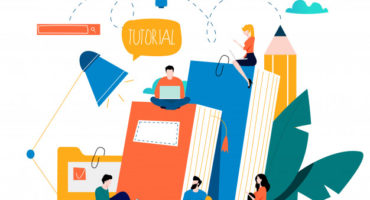 Read more +23 February 2021 in Education & Neurodiversity
Read more +23 February 2021 in Education & NeurodiversityApplication of IEPs
Individualized Education Plans (IEPs) are an extremely useful tool to pave the way for inclusion and diversity in schools. Differently-abled children with specific educational needs can benefit from such individualized plans to integrate better in the classroom. In today’s article, we will take a look at how IEPs can be used to maximise a student’s
 Read more +19 February 2021 in Education & Neurodiversity
Read more +19 February 2021 in Education & NeurodiversityIndividualised Education Plans (IEPs)
Nostalgia kicks in when you think of the pencil pouch, the school bell ringing for breaks, the last-minute cramming for tests, and the sleeping in class! Doesn’t this all remind you of your school days? Well, now there are advancements in the field of education which makes schooling more inclusive and helps neurodiverse (previously referred
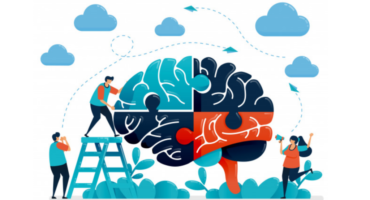 Read more +18 February 2021 in Basics of Neurodiversity
Read more +18 February 2021 in Basics of NeurodiversityRett’s Syndrome
“See the person, not their condition or syndrome” Our body is made up of a million different cells and genes which help us to function as a complex machine. If even a tiny part of this machine malfunctions or has any kind of wear and tear it affects the whole machine. Nonetheless, being made up
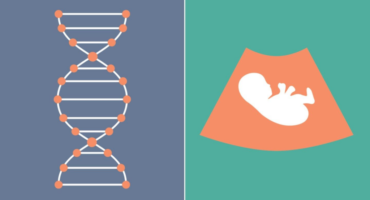 Read more +18 February 2021 in Basics of Neurodiversity
Read more +18 February 2021 in Basics of NeurodiversityFragile X Syndrome
“Having Fragile X Syndrome does not make you more Fragile than the others!” With some cutting-edge research going on in the field of biosciences, scientists and researchers are discovering and discussing disorders and conditions that are quite unheard of by the general public. One such syndrome is the Fragile X syndrome. As the name implies,
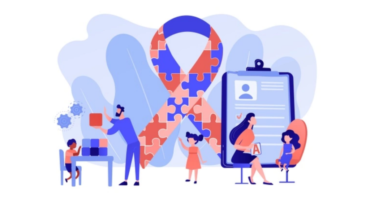 Read more +11 February 2021 in Basics of Neurodiversity
Read more +11 February 2021 in Basics of NeurodiversityAutism: Why fit in when you were born to stand out?
If you’ve met one person with Autism, then you’ve met one person with Autism – Stephen Shore Have you come across the Netflix show “Atypical” or “Love on the Spectrum”? Okay, if not this, then for all the Bollywood fanatics, surely you have seen Priyanka Chopra in “Barfi” or Shah Rukh Khan in “My Name
 Read more +11 February 2021 in Basics of Neurodiversity
Read more +11 February 2021 in Basics of NeurodiversityDown’s Syndrome
“What makes you different, is what makes you beautiful!” When you hear the term, “Down’s Syndrome”, what is the first thing that comes to your mind? Is it a particular facial feature? Is it someone you know who has this syndrome? Or is it just a medical word you have heard time and again but
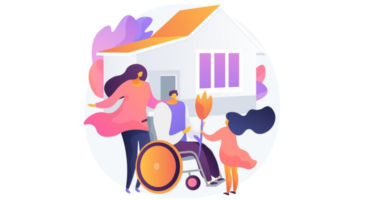 Read more +11 February 2021 in Basics of Neurodiversity
Read more +11 February 2021 in Basics of NeurodiversityCerebral Palsy: Yes, I have CP & NO, it’s not contagious!
“Don’t be ashamed of your story, It is an inspiration to the others” When we talk about “Neurodiversity” as a broad umbrella term, we are talking about structural and functional differences of the brain. However, what we also need to realise is that a number of disorders or conditions do come with a set of
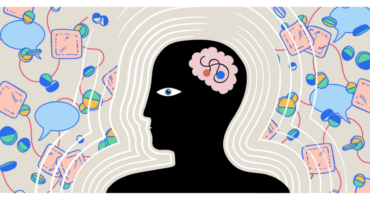 Read more +09 February 2021 in Basics of Neurodiversity
Read more +09 February 2021 in Basics of NeurodiversityTourette’s Syndrome: What makes you tic?
Tourette’s is in my speech, not in my intellect Have you ever come across someone who shows sudden quick movements, twitching, vocalizations, repetitive words? If yes, chances are that that person has Tourette’s syndrome. This is one of the not so common disorders falling under the umbrella term of Neurodiversity. A lot of you must
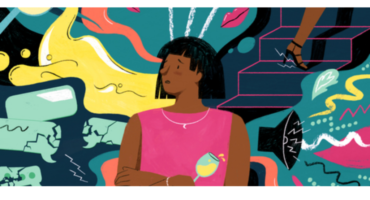 Read more +05 February 2021 in Basics of Neurodiversity
Read more +05 February 2021 in Basics of NeurodiversityDyspraxia
“I may have Dyspraxia, but Dyspraxia does not have me” When I was a kid, I had a friend who was extremely clumsy and did not understand how to do basic tasks like tying his shoelaces or jump and play with us! I was often confused and I wondered in what ways was he different
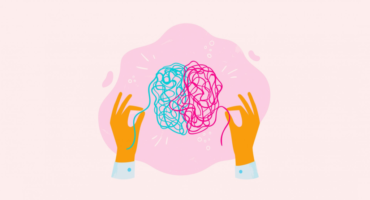 Read more +03 February 2021 in Basics of Neurodiversity
Read more +03 February 2021 in Basics of NeurodiversityDysgraphia
“ I don’t have a bad handwriting, just my own font!” When we were all in school, I am sure all of us had one of those “Best Handwriting Competitions”. I noticed a lot of the students would have spelling mistakes, wouldn’t be able to form sentences accurately and just couldn’t improve their handwriting no
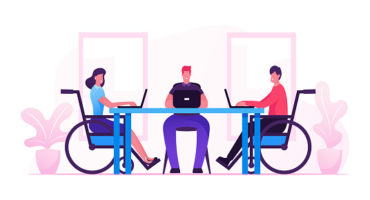 Read more +29 January 2021 in Inclusion in the workplace
Read more +29 January 2021 in Inclusion in the workplaceMore than just a feeling: Why is a Diverse & Inclusive Workspace culture important?
Why is a Diverse & Inclusive Workplace culture important? Diversity and inclusion is now a CEO-level issue around the world. Leading organizations now see D&I as a comprehensive strategy woven into every aspect of the talent life cycle to enhance employee engagement, improve brand, and drive performance. In a 2017 survey by Deloitte, the proportion
 Read more +29 January 2021 in Inclusion in the workplace
Read more +29 January 2021 in Inclusion in the workplaceEqual Opportunity Policy: What, Why & How
What is an Equal Opportunity Policy?
Simply put, an equal opportunity policy is a document that states what measures a business takes to eliminate and prevent discrimination in the workplace. This policy also must contain details of amenities that will be provided to their differently-abled employees.
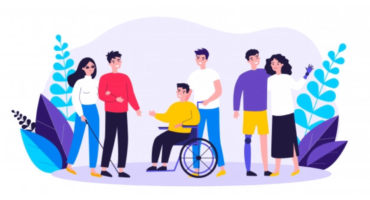 Read more +29 January 2021 in Inclusion in the workplace
Read more +29 January 2021 in Inclusion in the workplaceAn Enabled Workplace is an Equal Workplace.
What is an Inclusive Workplace? An inclusive workplace is one that values individual differences in the workforce and makes them feel welcome and accepted. Inclusivity and diversity are moral and legal responsibilities and employers are working hard to give diverse voices a platform. With a rising number of young differently-abled adults entering the workforce, it
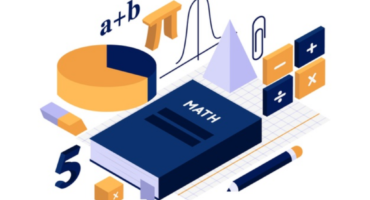 Read more +29 January 2021 in Basics of Neurodiversity
Read more +29 January 2021 in Basics of NeurodiversityDyscalculia: 1+1=3 Its okay, it doesn’t have to add up every time!
His teachers said that he was mentally slow, unsociable and adrift in his foolish dreams – Albert Einstein During my high-school days, although I loved math, I still had a bit of anxiety about it. But on the other hand, I had this one friend who just could not understand math. He would get confused
 Read more +20 January 2021 in Basics of Neurodiversity
Read more +20 January 2021 in Basics of NeurodiversityDyslexia: Not a disease or physical condition, but a Learning Style!
Everybody is a genius. But if you judge a fish by its ability to climb a tree, it will live its whole life thinking it’s stupid -Albert Einstein When I was in school, I remember some students being labelled as “weak” students or “slow learners”. My classmates always thought that something was wrong with them
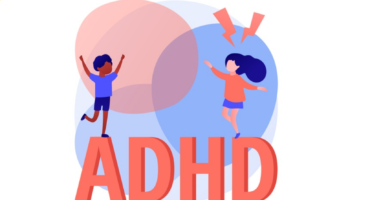 Read more +18 January 2021 in Basics of Neurodiversity
Read more +18 January 2021 in Basics of NeurodiversityADHD: Do we or do we not have your attention?
ADHD is not about knowing what to do, but doing what one knows Russell Barkley Have you ever come across someone who’s extremely fidgety, can’t sit still in one place for too long, keeps getting distracted or feels hyperactive and restless for most of the time? Chances are that they have low attention spans which
 Read more +12 January 2021 in Basics of Neurodiversity
Read more +12 January 2021 in Basics of NeurodiversityNeurodiversity: What does it mean?
The Human Brain is as Diverse as the Human Fingerprint – Victoria McGovern What comes to your mind when you read the word “Neurodiversity”? Think of Biodiversity, Racial diversity, Cultural diversity, Sexual/Gender diversity. I am sure you are able to associate specific images or scenarios in your head. Similarly the word Neurodiversity, simply broken down
